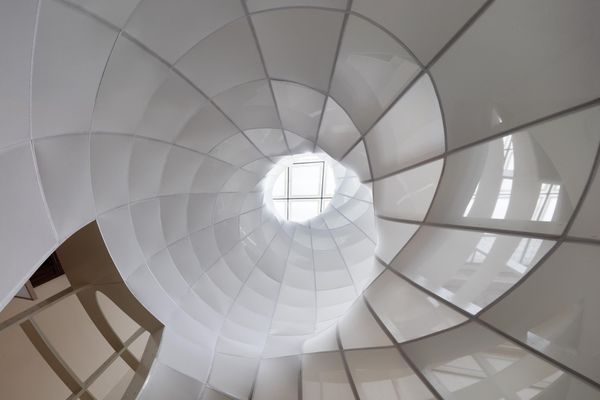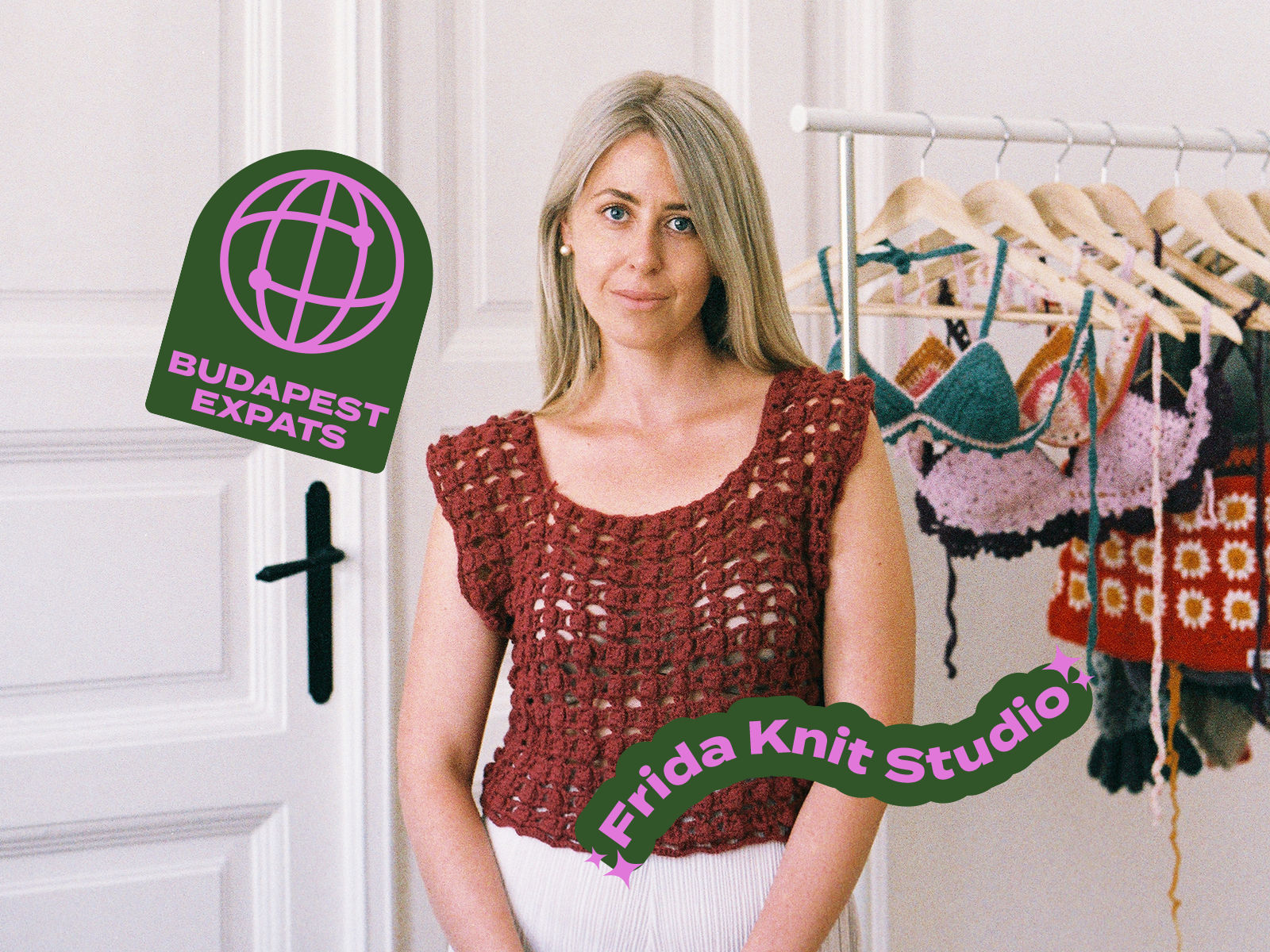I believe that expats living in Budapest have a distinct vision of the city. After all, we are not talking about foreign visitors or tourists, but about people who live and work here, who know our country, and who have placed their trust in it for the long term. They look at our city from a fresh perspective, blending their own culture and past experiences into an exciting mix. Our latest article series, Budapest through the eyes of creative expats, explores foreign artists, designers, and creative professionals who have set up their base in our capital.
Written by Lilla Gollob
In the second part of the series, we visited Aleksandra from Macedonia, the founder of Frida Knit studio. The small family business offers 100% handmade clothing, with some pieces requiring up to forty hours of knitting or crocheting. I discovered her unique hand-knitted pieces on Instagram, and after meeting Aleksandra to purchase one of her cropped vests (which has since become one of my favorite clothing items), I knew I had to tell her story in some way. So she was the one who sparked the idea for this series.
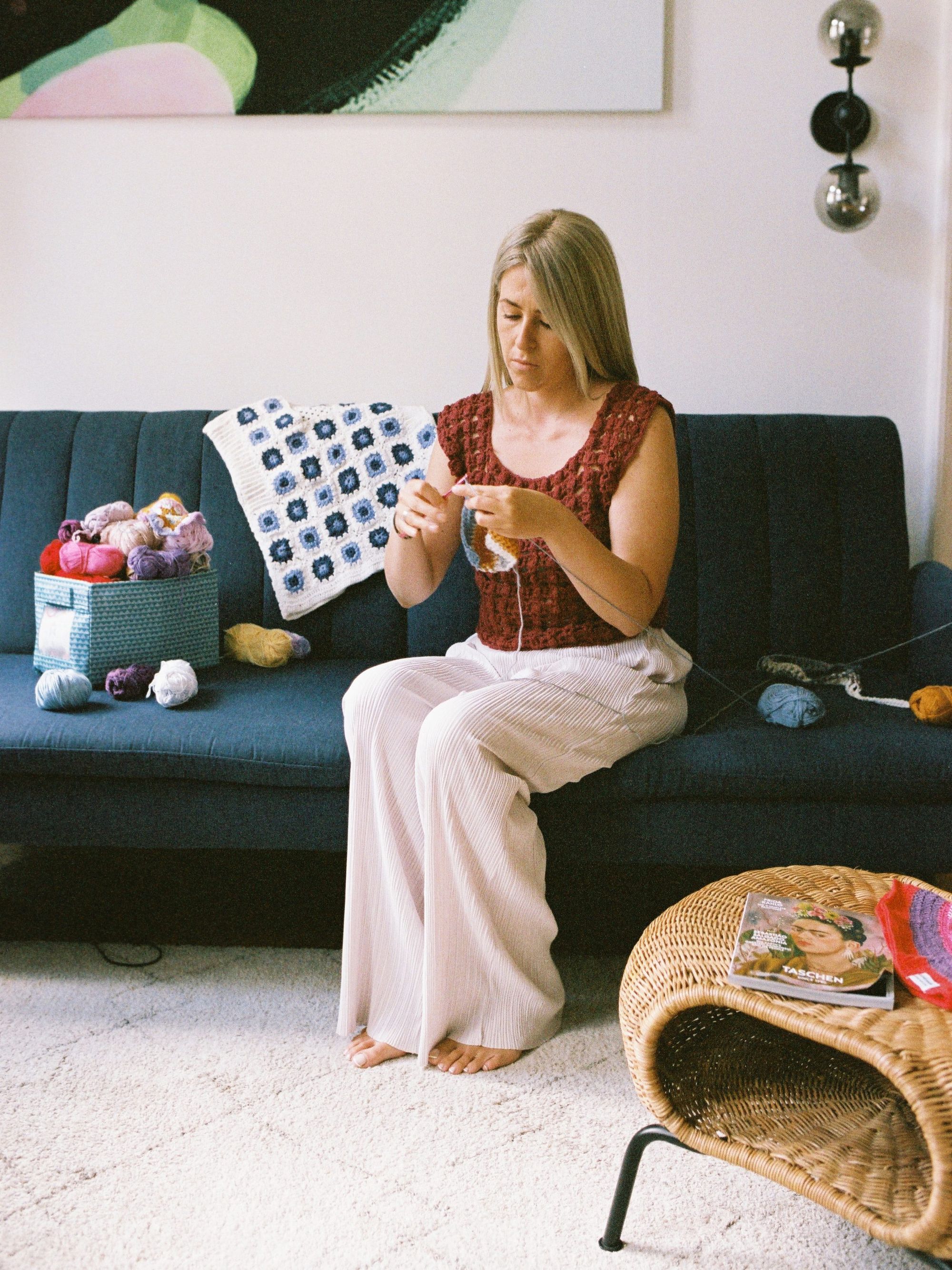
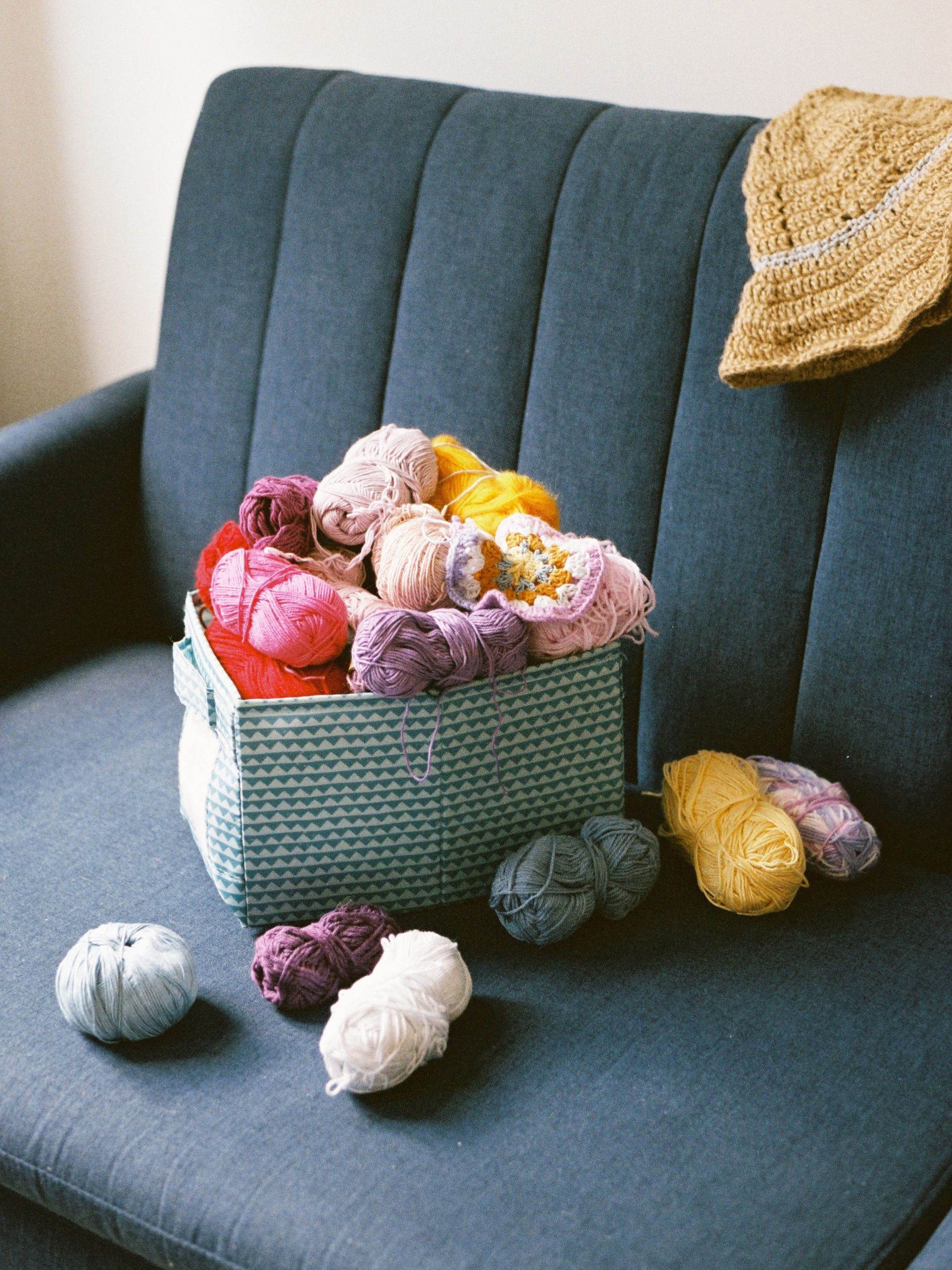
What’s the background story of your relocation to Budapest?
I came to Budapest first as a tourist back in 2013 to visit my then-boyfriend, who is my husband now. I still remember how amazed I was by the city’s bold architecture and rich history. One year later, I moved here as I received a scholarship to pursue a Master’s degree at Corvinus University. The initial plan was to stay here only for the course of my studies, but now, 8 years later, I am still living here in this beautiful city with my growing family.
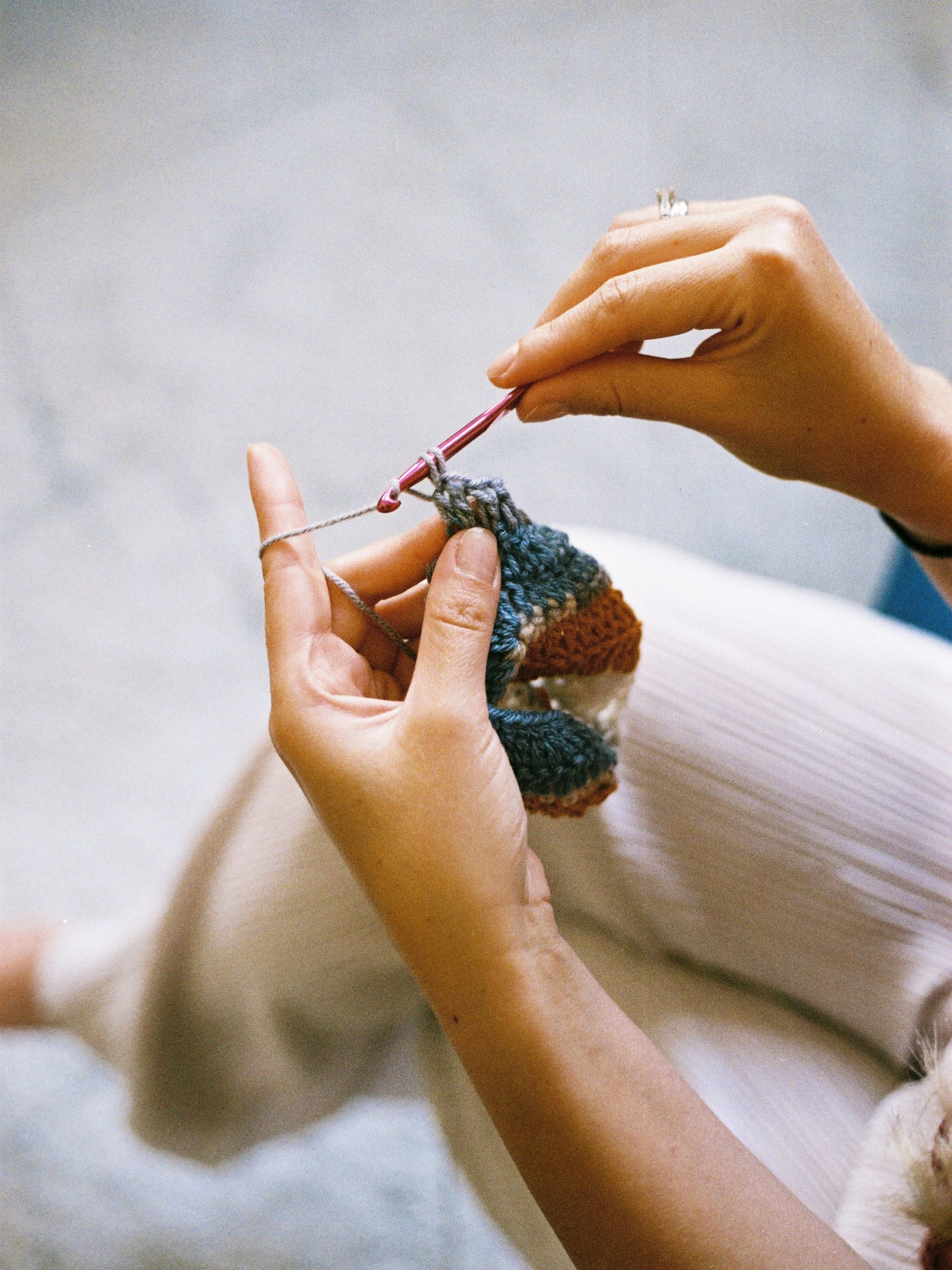
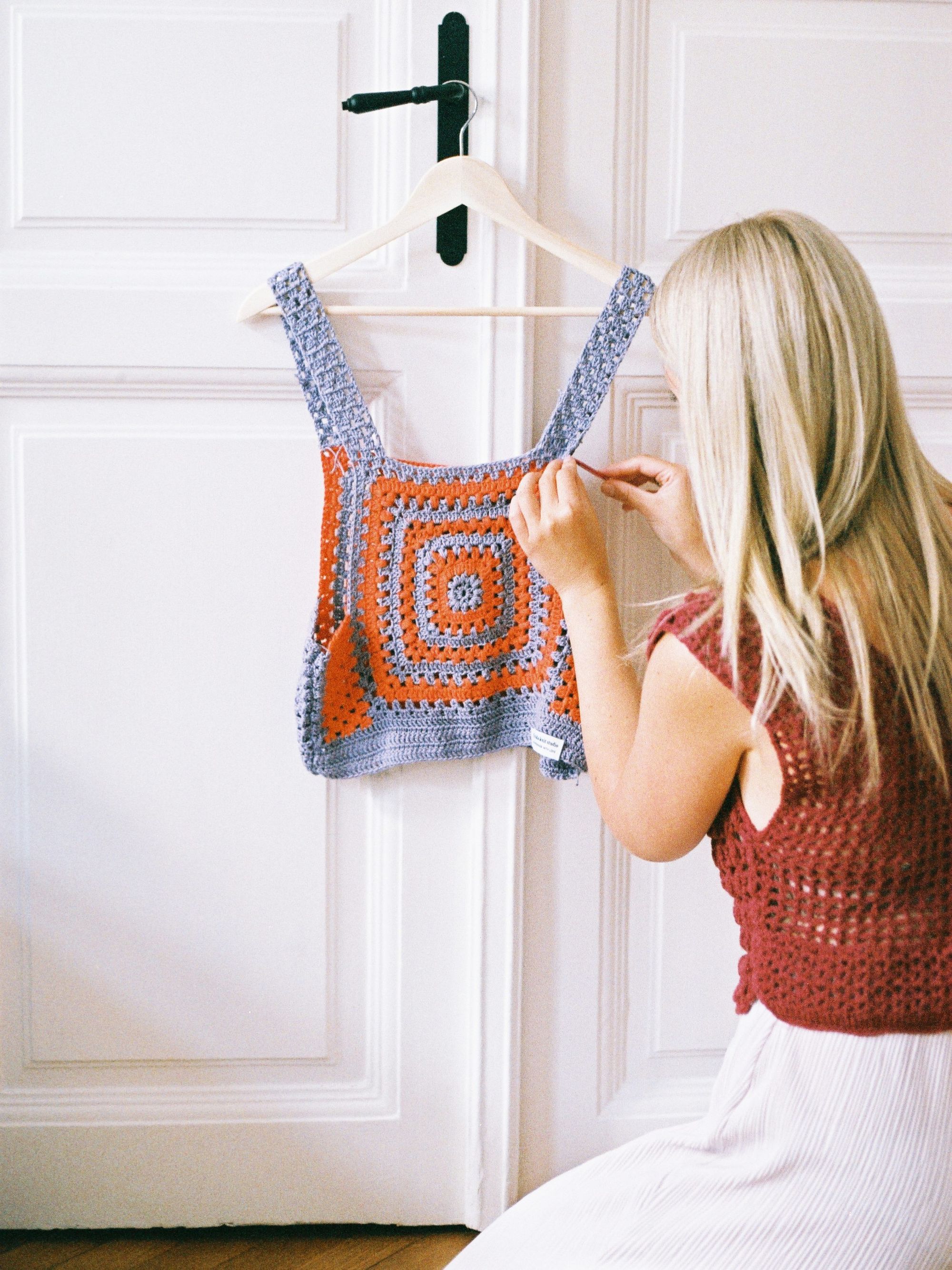
Do you remember your first impression of the city? What caught your eyes?
I was living and working as an au pair in Copenhagen at the time, so coming here was a huge contrast to what I was used to. In a good way. I found the city more livable for young people like me. The only thing I didn’t like was that there were very few bikes on the streets. But thankfully, that has changed now. It’s good to see how Budapest has developed into a modern capital in recent years.
When I asked you before the photoshoot about your favorite place in Budapest, you said Massolit Café. Why is this place important to you?
I like Massolit Books & Café because I spent a lot of time here studying as a student. Every time I come here, a wave of nostalgia comes over me. This place really makes you feel like you’re at home, because the staff cares so much about people. Plus, their carrot cake is the best in Budapest.
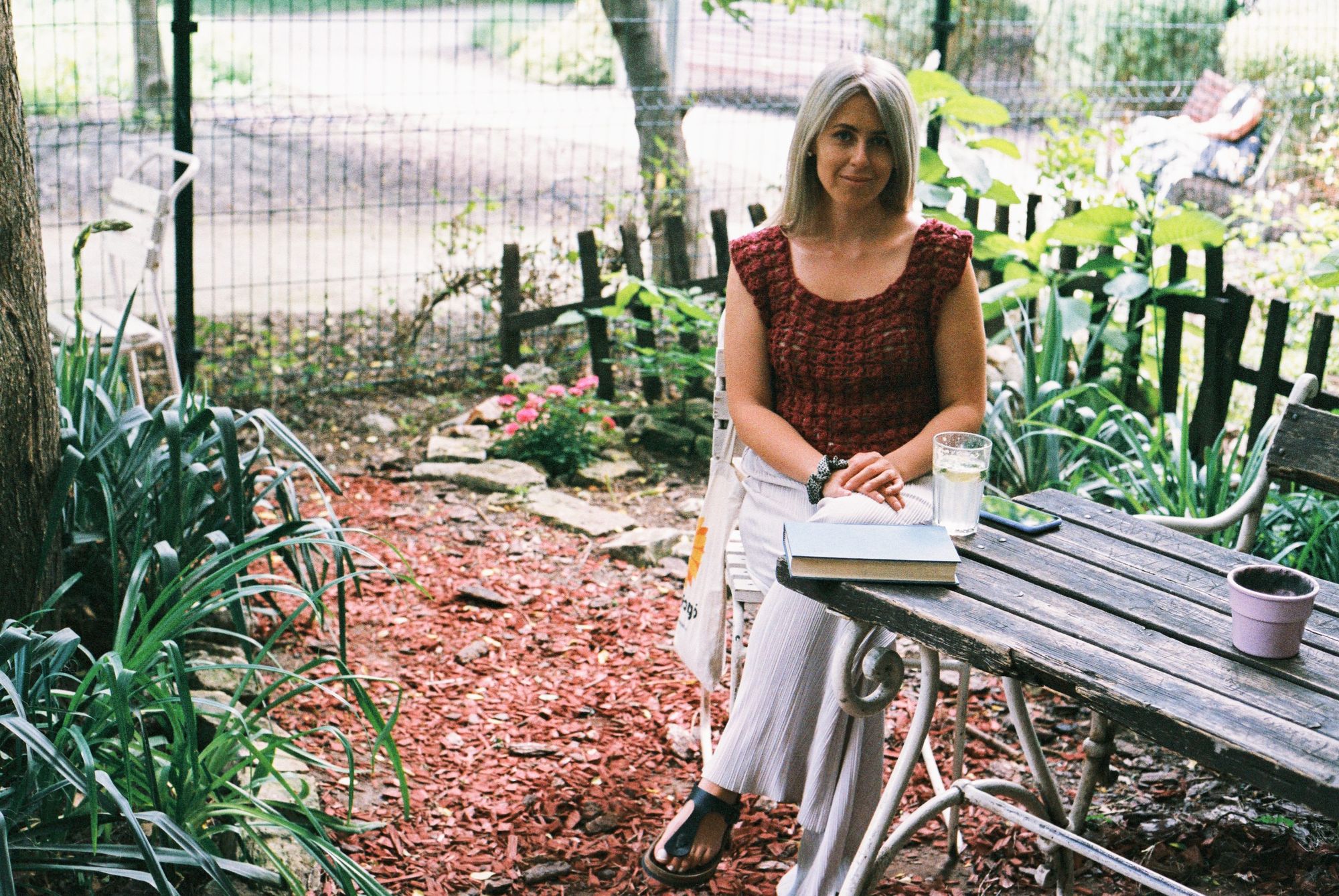
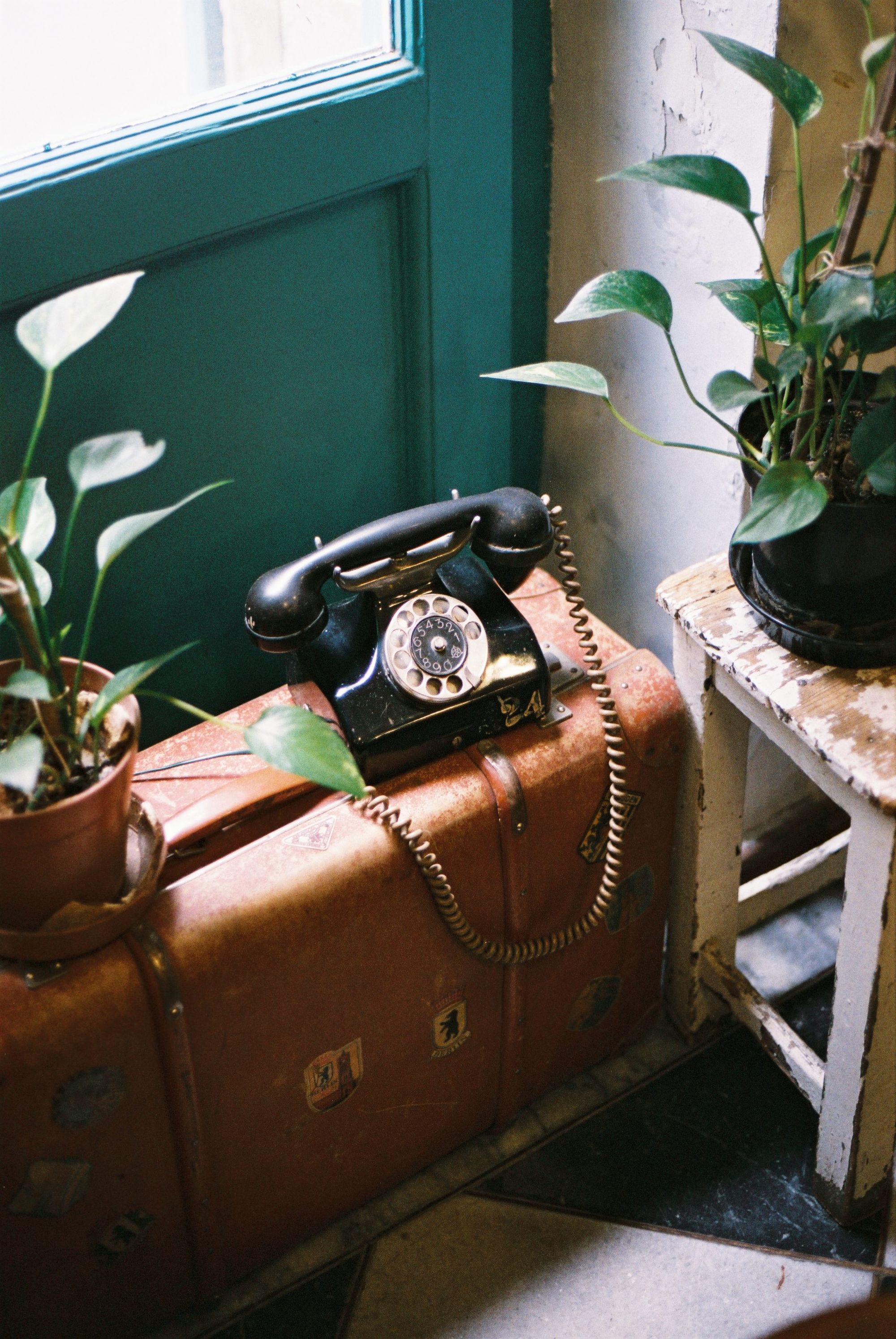
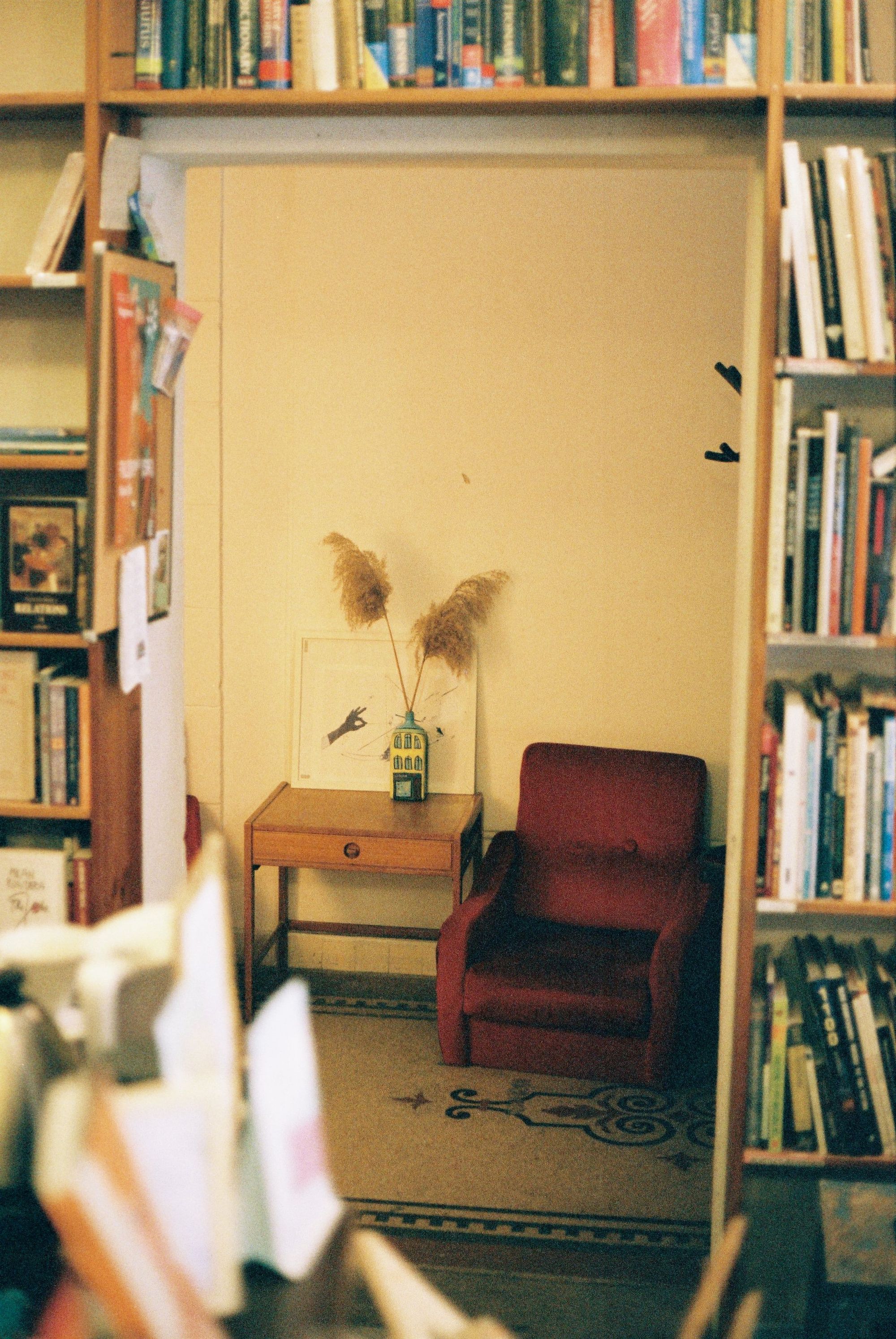
How did the idea of a hand-knitted brand come about and what are your main principles when creating clothes?
Since I was a teenager, I’ve loved wearing unique clothes, and it’s only become more important as I got older. Especially now, in the era of fast fashion, when women’s identity got unified and girls are wearing more or less the same outfits. Perhaps an even more important factor than striving for uniqueness was wearing comfortable, quality clothes that could be enjoyed for many years. This was also reinforced by years of moving from country to country (Denmark, Hungary, Italy). It became a burden to pack many clothes, so I started to live a minimalist lifestyle, with fewer but better clothes. I am lucky that my mother is a great knitter, and she started knitting my ideas first. Everyone around us was amazed by these pieces and we were persuaded to start our own business. So we run Frida Knit Studio with my mother Suzana: she works from Macedonia and I work from Budapest, but thanks to the internet, we can easily coordinate our work.
When making clothes, we focus on quality and comfort. We only knit a limited number of pieces at a time as we try to minimize the impact on the environment. All FRIDA products are made in a sustainable way: this includes both the fair wage payment and the high-quality standards for the materials used. Through these processes, we hope to make at least a minor improvement and raise consumer awareness about living with less but better.
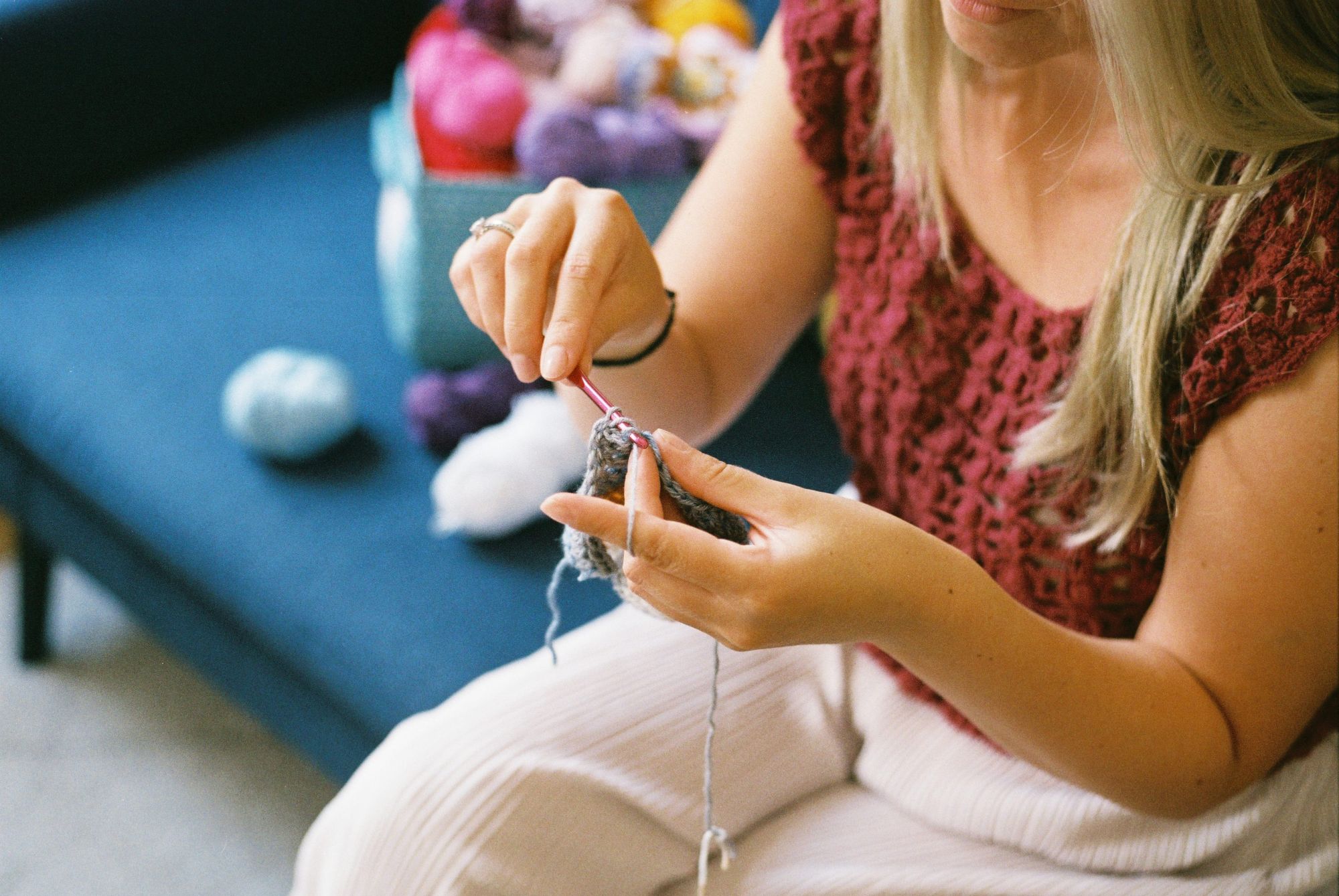
Tell us a bit about the history and special techniques of the traditional Balkanian wool crafts that you aim to revitalize.
From the first stitch of each sweater to the label sewing, everything is done by hand with one needle using the crochet technique. We are employing century-old techniques passed down from generation to generation. Crocheting was taught to my mother by her grandmother, and I learned it from her. Each FRIDA sweater is knitted at a slow pace with high-quality materials like virgin wool, alpaca wool, mohair, and cotton. Production takes time; hand knitting one sweater can take a week or two. Each stitch holds a piece of history and a piece of soul.

What inspires you to design these special textures, colors, and patterns?
We find inspiration everywhere: in books, museums and our travels, but Budapest is also a great inspiration. We celebrate femininity, colors and strong, free-spirited women. All of our handmade pieces are pre-designed, but as we start knitting, we almost always add or change a few details that we didn’t originally plan.
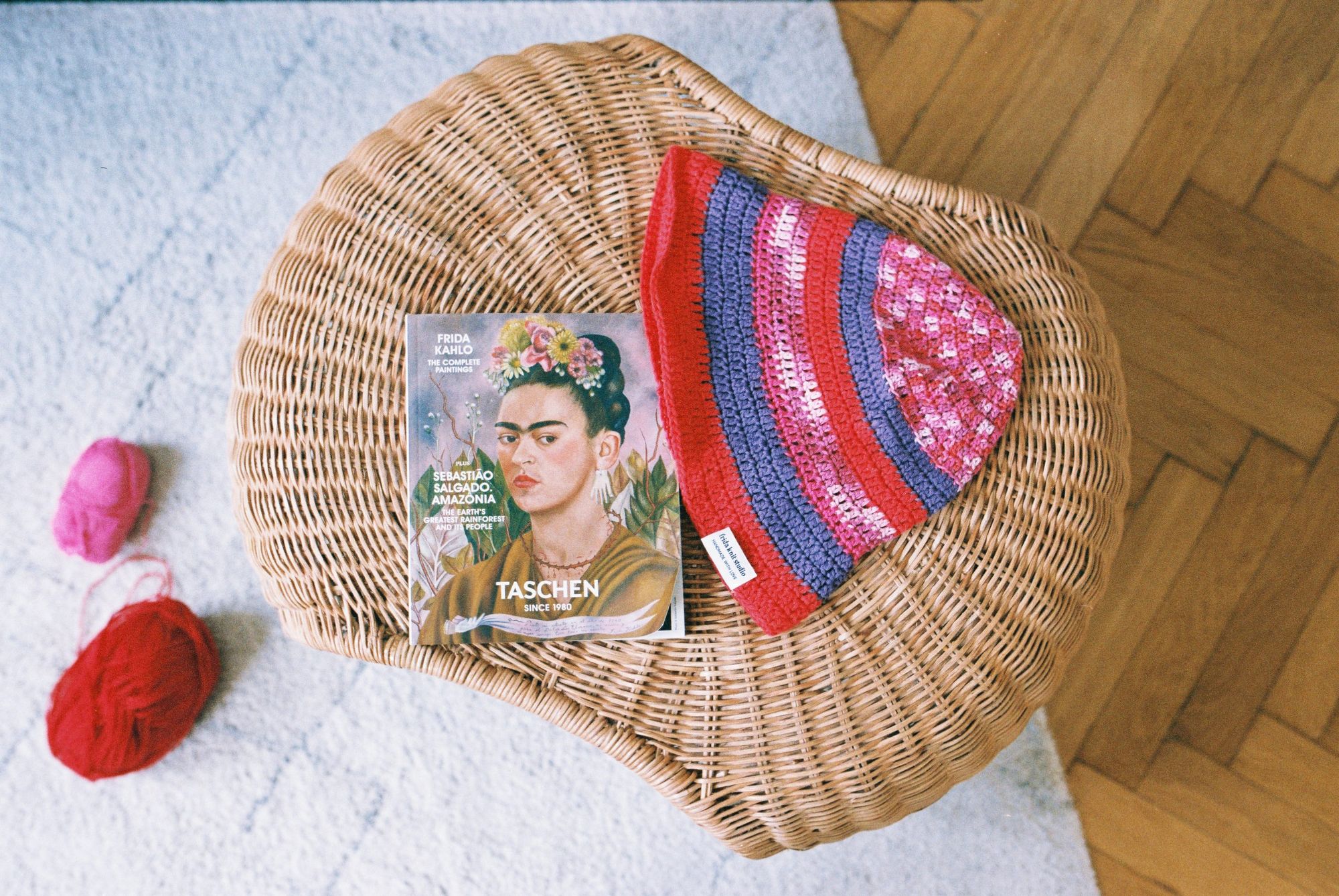
What difficulties or heartwarming experiences have you encountered while building a brand in Budapest as an expat?
Building a brand, in my opinion, is a difficult task for any entrepreneur. Despite the language barrier, one of the most difficult challenges for an expat was understanding the local market needs and preferences, as well as finding local suppliers, such as yarn vendors and package delivery companies. Furthermore, as the owner of a small family business, I am responsible for marketing, sales, social media, and other aspects in addition to design and production. But the most challenging part has been and continues to be finding the perfect balance between doing what I love and spending quality time with my son. I have to say that everyone around me was very supportive during this time. Many young brands in Budapest are similar to FRIDA, and it’s wonderful to see their support for what we’re doing.
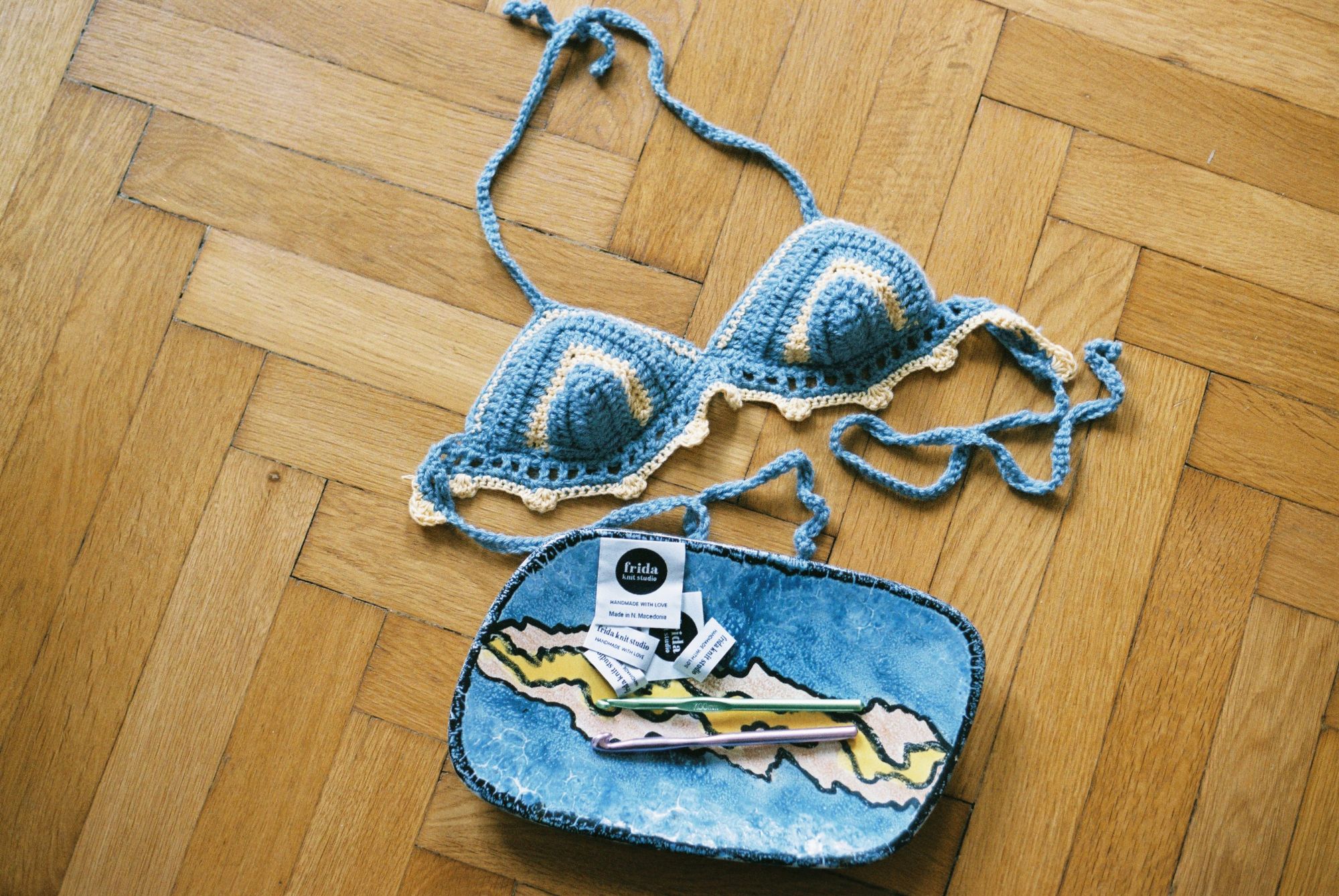
Favorite Hungarian dish: Lecsó and túrógombóc (Hungarian style Ratatouille
& sweet cottage cheese dumplings)
A Hungarian word that you know and like: szerelem (love)
Best season in Budapest: spring
A song that describes your mood lately: Happy by Pharrell Williams
A color that you enjoy these days: pink
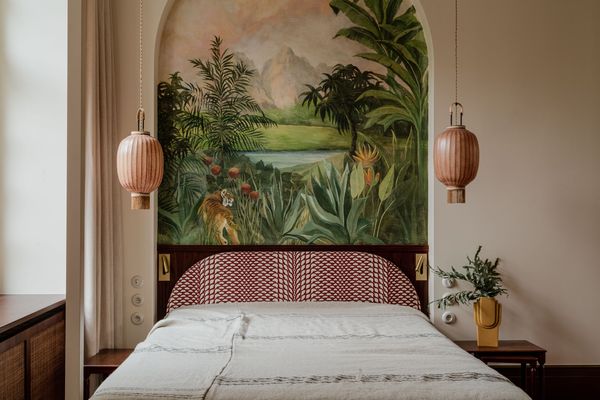
Antique details, modern features, French touch—An apartment in Warsaw we’d move in anytime

Air pollution kills tens of thousands in Poland
